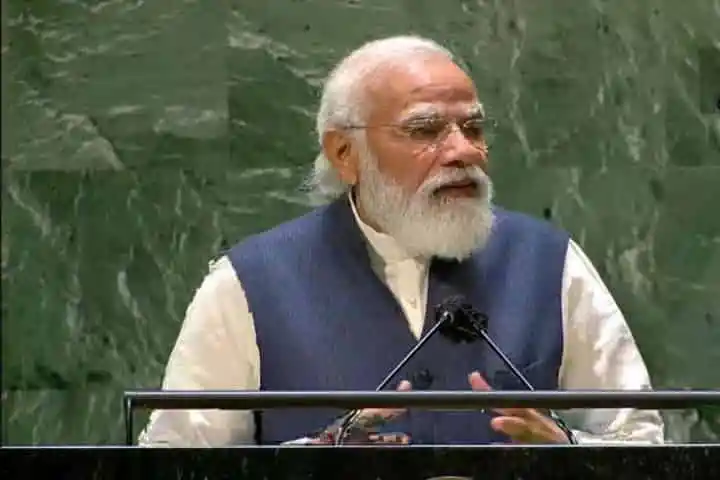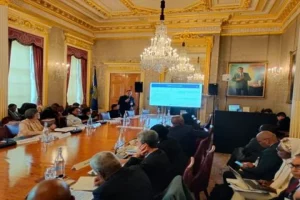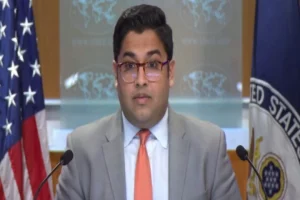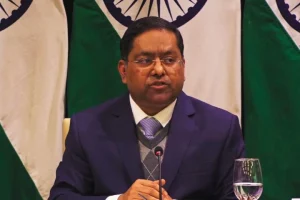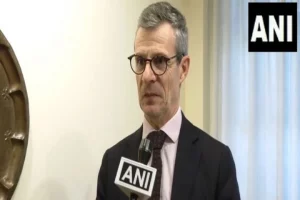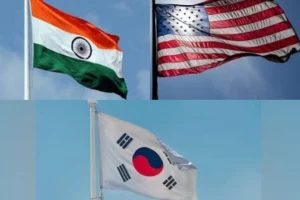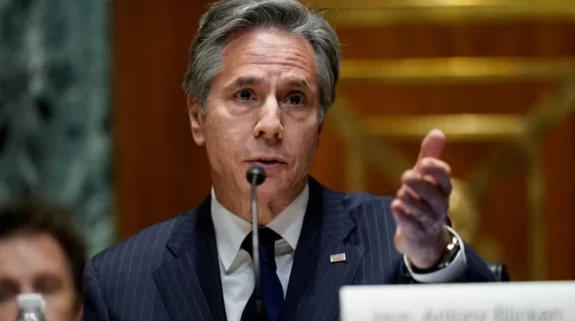Prime Minister Narendra Modi had fired India’s intent to become a key global manufacturer of semiconductor chips—the core of new digital technologies, including 5G networks, drones and electric cars, during his recently concluded visit to the United States.
PM Modi personally flagged a rising India’s aspiration to become an international semiconductor hub during his meeting with Christiano R Amon, CEO of Qualcomm, during the Washington leg of his visit to the US, which included a rousing address to the United Nations General Assembly (UNGA) and a proactive participation in the first face-to-face summit with fellow members of the Indo-Pacific Quad.
"It was a great meeting. We talked about 5G and its acceleration. We talked about an incredible opportunity to advance the industry not only domestically in India but India as an export of technology," Ramon said, bannering the strategic importance of his meeting with Modi following his pithy interaction with the Indian Prime Minister.
Modi acquainted the Qualcomm CEO with India’s huge potential as a formidable semiconductor base in the international supply chain of computer chips. India is also a huge domestic market for chips.
According to Invest India— the nodal body under the Ministry of Commerce and Industry, facilitating fresh investment in the country, the country’s semiconductor demand at present, is valued around $ 24 billion but by 2025, the market is expected to touch $ 100 billion.
PM Modi told Amon that India had defined 5G standards and called for Qualcomm’s active participation in this field.
The Prime Minister gave Amon an overview of the great investment opportunities in India’s telecommunications and electronics universe, specifically focusing on the recently launched Production Linked Incentive Scheme that would greatly benefit international companies pursuing Electronics System Design and manufacturing. He also pointed to untapped opportunities for building the local innovation ecosystem in India, tapping proven Indian talent, which Qualcomm had already leveraged while expanding its international footprint.
“We spoke on semiconductors which is an important topic of conversation. We spoke on the opportunity to continue to build an incredible mobile ecosystem developing in India. We are happy with everything we're doing together with India. I think the approach to driving economic growth in making India a destination for investment has been very successful and we welcome that," Amon observed.
Also Read: PM Modi holds one-on-one meetings with Qualcomm, Adobe and First Solar CEOs in Washington
PM Modi’s meeting assumes importance as there is major thrust among the Indo-Pacific partner countries—a coalition of democracies– to reduce dependence on China in semiconductors and develop independent supply chains. India with its huge market offers a major opportunity for the US tech giants as Washington pushes through its policy of decoupling from China. Analysts point out that the world understood during the course of the Covid-19 pandemic that overreliance on China in the global supply chains could prove harmful, as Beijing could leverage its critical role in the global economy for unfair political advantages.
The message of India’s strategic interests in semiconductor chips, this time flagged at the highest level in the US, has already been picked up in other geographies as well, including Taiwan. Bloomberg Quint is reporting that officials in New Delhi and Taipei have met in recent weeks to discuss a deal that would bring a chip plant worth an estimated $7.5 billion to India to supply everything from 5G devices to electric cars.
The report also said that India is currently studying possible locations with adequate water and manpower. Besides, the government is looking at providing financial support of 50 per cent of capital expenditure from 2023 as well as tax breaks, it added.
Taiwan, which is the largest exporter of electronics and controls, enjoys more than 60 per cent share of the global market for semiconductors used in smartphones, vehicles and closed-circuit televisions, among other products.
Also Read: With help from Korea, can India become a global semi-condutor hub?






